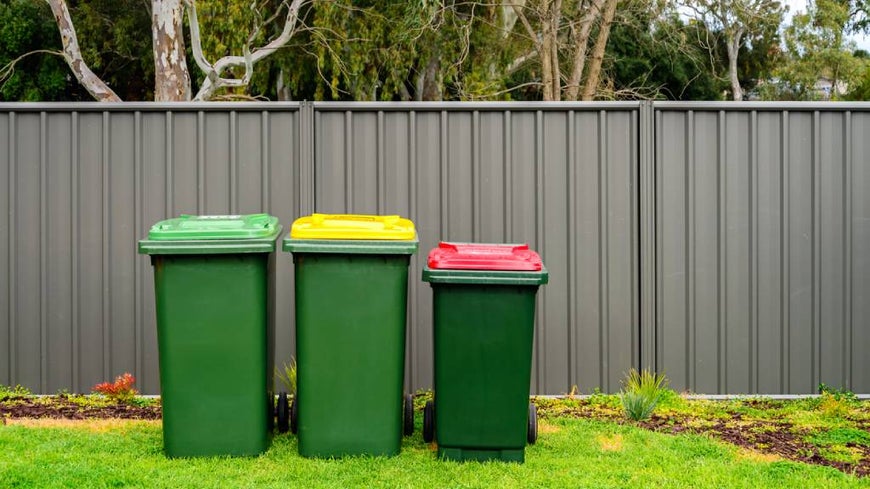How to keep your neighbours happy with good bin etiquette

Written by Claire Isaac for Australian Seniors.
We are all aware of the council guidelines related to household rubbish. Bins must be taken outside and placed by the kerb for rubbish collection day, for example, and taken in once they have been emptied.
There are more rules to follow too: only put household waste in your rubbish bin; recyclables can only be placed in the appropriate recycling bin; and garden waste goes in yet another receptacle. Most councils ask residents not to put overflow rubbish in bags next to bins as it will not be collected, and ensure that lids are firmly closed.
Rubbish neighbours
Seems straightforward, right? Well, yes. And no. Because while we all know what we should be doing, we are not necessarily following all the rules as closely as we could. Take that overflow, for example. A few of our dealings with detritus can be a little devious, with some brazen householders even sneaking out early to load up their neighbours’ bins waiting on the kerb.
Is that legal? Well, technically yes. ‘Bin stuffing’ as it is known, is not illegal in Australia, however annoying it may be for the ‘stuffee’. Be aware, though, the habit is generally considered a moral no-no by many right-thinkers, and you risk being ostracised by your neighbours.
Zarife Hardy, director of the Australian School of Etiquette, explains that a certain amount of sensitivity is needed. “The polite thing to do is ask first, if a neighbour’s bin isn’t full and you aren’t about to fill it with smelly, inappropriate items, then it is most likely that they won’t mind, but you should never assume,” she says. “And if you are going to put things into your neighbour’s bin once it has been placed out the front, then please make sure the right rubbish goes into the right bin.”
Reverse garbage
The newer kids on the block are the container deposit schemes, which offer hard cash for recycling certain lucrative bottles and cans. Keen return-and-earners have been known to go through private recycling bins to get more returns to earn. But take note: “Foraging in recycling bins for eligible containers is not condoned,” says the NSW Return and Earn scheme on its website. “People collecting containers from kerbside bins need to respect the rights of private landowners and remember that all the usual laws apply. Tipping bins out onto public land is littering, and on-the-spot fines can be issued against people breaking the law.”
No trash talk
Finally, one slightly more sensitive topic needs addressing – the number of bottles we may be putting out, especially during recent lockdowns. No-one wants to become a fixture of neighbourhood gossip on recycling day. “We should never judge someone on what’s inside their bin,” Zarife implores. “As long as it isn’t overflowing every week and leaving a mess all over the ground, then the rubbish inside is your prerogative.”
3 Dec 2021